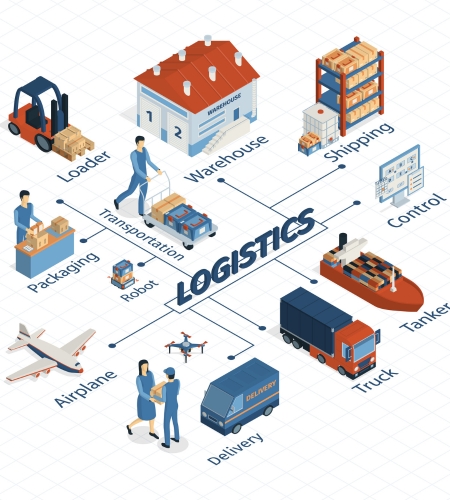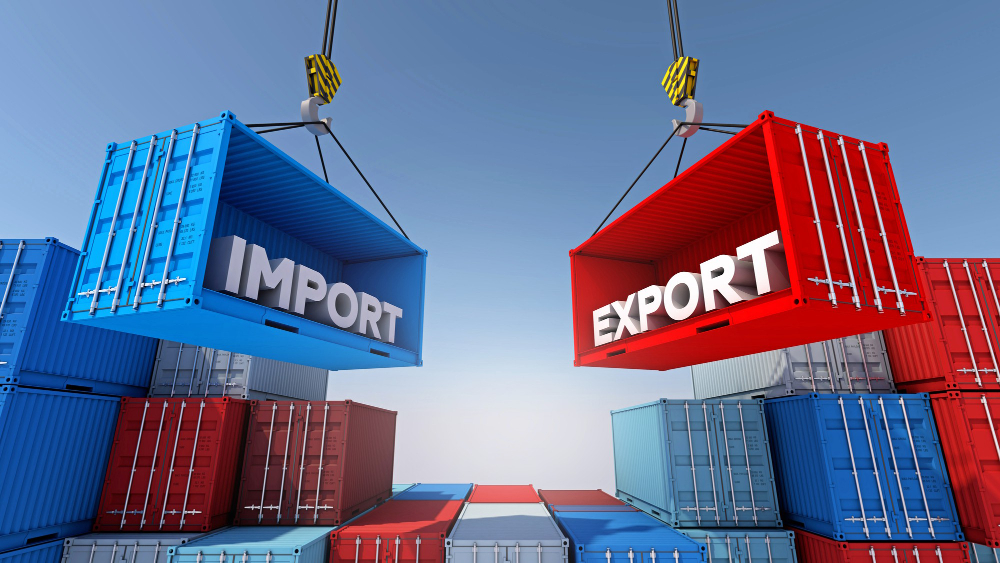Services
TOTAL LOGISTICS

Total logistics refers to a comprehensive, end to end approach to managing all aspects of the supply chain and logistics operations within a unified system. It encompasses the coordination, integration, and optimization of every function involved in the movement of goods, from the point of origin (suppliers or manufacturers) to the final point of delivery (end customers).
Rather than treating each component of the logistics process as separate, total logistics aims to create a seamless flow of materials, information, and services to improve efficiency, reduce costs, and enhance overall service performance.
MII has established itself as a trusted international logistics company with extensive experience in managing total logistics solutions. From the first mile to the last, MII delivers a seamless integration of freight forwarding, customs clearance, warehousing, distribution, and supply chain management, tailored to meet the specific needs of each client.
With a deep understanding of global trade complexities and regulatory landscapes, MII ensures that every shipment moves efficiently, cost-effectively, and in full compliance with international standards. By leveraging technology and a professional logistics network across countries, MII transforms logistics challenges into strategic advantages.
Whether for import, export, or cross border supply chain coordination, MII provides a one-stop logistics solution that enhances visibility, optimizes delivery timelines, and drives measurable value for businesses of all sizes.

Key Components of Total Logistics
- Procurement Logistics = Managing the sourcing and inbound transportation of raw materials or components from suppliers.
- Transportation Management = Organizing and optimizing the movement of goods via air, sea, land, or multimodal transport.
- Warehousing and Inventory Management = Storing goods efficiently and managing stock levels to meet demand while minimizing holding costs.
- Order Fulfillment and Distribution = Processing customer orders, picking and packing products, and ensuring accurate and timely delivery.
- Customs and Regulatory Compliance = Handling customs documentation, duties, and ensuring adherence to international trade regulations.
- Reverse Logistics = Managing returns, exchanges, recycling, or disposal of goods post-sale.
Information and Visibility Systems
Using digital tools and platforms to track shipments, monitor inventory, and generate real-time data across the supply chain. Objectives of Total Logistics:
- To provide end-to-end supply chain visibility and control
- To integrate all logistics functions for seamless coordination
- To reduce overall logistics and operational costs
- To improve delivery speed, accuracy, and customer satisfaction
- To enhance flexibility and responsiveness to market changes
Total logistics is not just about moving goods from one place to another, it is a strategic approach to integrating all logistics and supply chain activities into a single, efficient, and data-driven system. By adopting total logistics, companies can optimize their operations, strengthen customer relationships, and gain a competitive edge in today’s fast-paced, global marketplace.


The Application of Total Logistics in Export-Import
In international trade, total logistics plays a vital role due to the complexity of cross-border transactions and the involvement of multiple stakeholders.
Application:
- Pre-shipment logistics: includes goods collection, packaging, and preparation of export documents.
- Freight forwarding: oversees transportation across borders via sea, air, or multimodal routes.
- Customs clearance: manages import/export duties, HS code classification, and legal documentation.
- Last-mile delivery: distributes goods to the importer's warehouse or end customer.
- Reverse logistics: handles product returns due to rejection or non-compliance.
Benefits:
- Speeds up the export-import process
- Prevents delays at ports or airports
- Ensures legal compliance and cost efficiency
